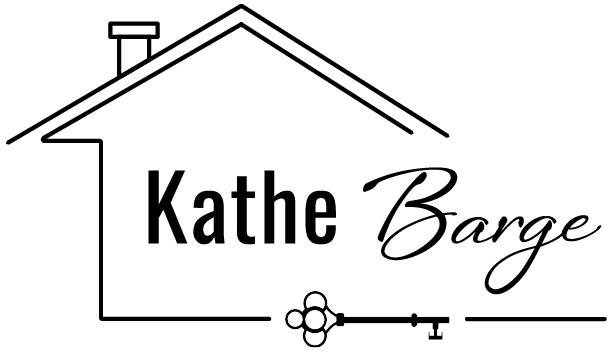by Kathe Barge | Jun 13, 2022 | Buyers, Buying Conditions, Contracts, Helpful Tips, Inspections, Listings, Property Value, Real Estate

What kinds of items would be viewed as “hot buttons” for home buyers on inspections?
If you are a home seller, there is an ever increasing list of items that you will be expected to address if any are discovered on your home inspection. Given that, if you are thinking about selling your home, it would be a good idea to determine if any of these conditions exist at your home and remedy them prior to listing your home. Items that sellers are generally expected to address these days include:
Radon: if your home exceeds 4.0pCi/l, you will be expected to remediate the radon, even if it was a low reading when you bought the home. Radon varies over time. The estimated cost for a system is approx.. $1300.
Mold: If there is mold anywhere at all, you will be expected to have it remediated. Basements and attics are the most obvious places mold hides out, but be sure to check showers and under sinks.
Electrical: If you have knob and tube wiring, you will likely be paying for it to be removed and replaced, unless you price your home with a rewire in mind and disclose its presence. If your home has any Pushmatic brand electrical panels, buyers will also expect those to be replaced.
Broken Seals: if you have thermopane windows, doors or skylights in your home, buyers will expect you repair the broken thermo seals. This is evident because the windows have a cloudy look to them. There are a few companies in Pittsburgh that can do this reasonably affordably.
Septic/Sewer: Sewer lines are the newest “must do” inspection. If a buyer finds roots in your sewer line, at a minimum you will be expected to clear the roots from the line, but if they are bad you will be expected to line or replace the line. This can be extremely costly so I highly advise that you camera your own lines in advance of selling and get them in good shape.
You can be certain that if any of these conditions exist in your home, you will be expected to remedy the condition unless you disclose its presence and price accordingly.
[contact-form-7 id="115311" title="Get More Information Form"]
by Kathe Barge | Jun 9, 2022 | Blog, Buyers, Buying Conditions, Contracts, Helpful Tips, Inspections, Listings, Property Updates, Property Value, Real Estate

We find the inspection process confusing – do we have to fix everything in the inspection report before we sell our home or just the repairs the buyer requested?
The home inspection report is the document from which your buyer works to make their repair requests of you. Some buyers will ask for everything and others will ask for only those items that they think are important. They may let some things go, for example, if they are planning on renovating an area and anticipate fixing those items as a part of the renovation.
Once you and your buyer agree on a list of repairs, these are memorialized on an addendum. It is that addendum, called a Change in Terms Addendum (“CTA”), from which you work when completing your repairs. You need not refer to the inspection again unless the CTA references it. You do, however, need to make sure that you do everything on the CTA exactly as specified, so be sure to read it carefully and provide a copy to your contractor(s). For example, if the CTA says that you will have GFCI outlets installed by a licensed electrician then you need to make sure you hire a licensed electrician, and not your favorite handyman, to make the repair! If the CTA says you must paint to match existing then you need to take a sample of the existing paint to the paint store and color match it – don’t rely on old paint in cans – paint fades with age and it won’t match. Be very careful to be sure you are complying with the terms of the CTA – if you do not, or if your contractor does not, your closing may be delayed or postponed until the work is done as specified. Along those lines, be sure to review your contactor’s work when complete and make sure that he actually did what you agreed to do on the CTA. If not, request that he return before it becomes a walk-through issue.
And of course, be sure to get paid receipts from all contractors, or if they have not been paid, notify the closing company so that they can be paid at closing. All repairs must be paid for before ownership changes hands so be sure to stay on top of your bills, and provide receipts to the buyers agent.
A home’s value is set by the market. Value is always determined by what a buyer is willing to pay for your home. Many factors come into play in setting that value. Market value reflects quantitative factors such as: # bedrooms, # bathrooms, # garages, placement of garages (attached or integral), lot configuration (large and functional back yard? Cliff lot?), location of the home generally, age of roof, age of mechanicals. Market value also reflects more qualitative items: how updated is your home, and is it all new, or just refreshed? What is the floorplan (open concept?) What are your wall colors? There is always a range that value will land in, which we call the range of reasonable. There is no ONE price at which a home will sell. If there are many buyers seeking a home like yours, it will sell at the top of the range of reasonable. If there are not, it will take longer to sell and may sell a bit lower in the range. What the market does not consider in setting a value of a home is what you need from the home. In 2008, many homeowners had used their homes as ATMs and withdrawn large sums of money for educations, vacations and cars. When the market softened, there was not enough equity for them to be able to sell their homes and not be in a short sale situation. This fact, that a homeowner over-extended themselves on mortgages, is not the least bit relevant to market value. The market is also not going to consider what you plan to do next. If you plan to move to Los Angeles to be closer to family and are finding that the Pittsburgh market is not going to yield you enough to be able to buy in L.A., you will need to turn to other investments to make up any difference.
We are in a very robust market – your home is far more likely to garner more now – whatever that may be – than it could have in the past. Forecasters are also suggesting that values will soften by year end. My crystal ball is out for service, but what I can tell you is that every hot market eventually softens. Waiting out the market so that you can get a price that the market is unprepared to deliver at this time may have you waiting many, many years, and during that time you may need to invest even more in your home in order to deliver to the market what it needs in order to deliver an acceptable sale to you.
[contact-form-7 id="115311" title="Get More Information Form"]
by Kathe Barge | Apr 11, 2022 | Buyers, Buying Conditions, Contracts, Helpful Tips, Interest Rates, Listings, Market Trends, Pittsburgh, Property Value, Real Estate, Sellers, Selling Conditions

How do you guard against overpaying in this competitive market?
You have a good reason to worry about prices in the market that we are in. Currently it seems that prices have risen at least 10% in some price brackets since the new year. That’s an incredible amount for the Pittsburgh market which typically appreciates at the rate of 1 to 2% per year. That increase is not being seen a crossed all price brackets – the million dollar plus market has as a general rule seen less. However, the majority of our homes are still seeing multiple offers and the prices are still coming in over the asking price.
Given the current state of the market, there is a high likelihood that those participating in some of the more intense bidding wars going on right now are going to end up overpaying for their homes. If they remain in their homes for 5 to 7 years, however, that should not be an issue. We should see enough market appreciation in a 5 to 7 year period to make up for any premium that might be paid in the current market.
If you are getting a mortgage, the appraisal required by the mortgage company provide some level of protection. However, most appraisers are trying to make their appraisals come in where the market is presently, so that doesn’t exactly protect you from the “bubble” we may be experiencing. Additionally, if you are involved in a multiple offer situation, to be the winning bidder you will probably have to offer some level of “appraisal gap coverage” meaning that you agree to accept the appraisal at a lower number than the purchase price, should that occur. So, you will not benefit from the typical protections afforded by an appraisal.
In the end, the answer to your question is that if you are buying in this market, you are just going to have to come to peace with the fact that you may need to do what appears to be overpaying in order to get a home for you and your family. However, in the end, even if the market does settle down a bit, as long as you are not planning to move in the near future, the market will eventually catch up with any premium you might have to pay.
[contact-form-7 id="115311" title="Get More Information Form"]
by Kathe Barge | Mar 30, 2022 | Buyers, Buying Conditions, Contracts, Helpful Tips, Inspections, Listings, Market Trends, Property Updates, Property Value, Real Estate, Sellers

The market is so hot right now and we aren’t having any luck getting a home – should we waive home inspections?
You are correct –the market under $1million is very fast paced right now, and in many instances, the winning bidder has waived home inspections. That does seem to be what it may take to “win” right now but I cannot recommend that you make that choice. Now several months into the “waive inspections” craze we are starting to hear stories about the expected fallout from this hasty decision.
From the seller’s perspective, I highly recommend that you have your home pre-inspected and repair or disclose the relevant items. While an inspection might cost you upwards of $500, it is money well spent toward a smooth closing. If you have pre-inspected your home and provide the report to prospective buyers, you are doing your part to make sure your buyer is well-informed. In the absence of a pre-inspection, I do not recommend that you accept an offer from a buyer who has not inspected your home. I have started hearing from home inspectors that disgruntled buyers are seeking post closing inspections to find problematic items and sue the sellers for failure to disclose. You don’t want that to be you. If you have not pre-inspected, we can discuss strategies to allow a buyer’s inspection and still protect you.
From a buyer’s perspective, as we all imagined would happen, the post-closing stories are starting to mount about buyers who purchased without an inspection and are now having all sorts of forseeable issues – roofs leaking, furnaces failing… If you are going to make this risky choice, you need to do so knowing that you will be assuming the risk of potentially tens of thousands of dollars of issues The contract specifically states that your inspection is your opportunity to find issues – if you waive that, you will be fighting an uphill battle to recover against anyone. Before you make an offer without an inspection contingency, you really do need to ask yourself if you are prepared to absorb those costs!
[contact-form-7 id="115311" title="Get More Information Form"]
by Kathe Barge | Sep 7, 2021 | Blog, Buyers, Buying Conditions, Contracts, Inspections, Listings, Market Trends, Marketing, Mortgage, Property Value, Real Estate, Sellers, Selling Conditions

We hear selling a home can be a trying process. Any annoyances a seller should be expecting?
Below is a short list of many of the “joys” sellers might experience during the listing process. Being aware that these are possibilities will hopefully help you take them in good humor if they happen to you!
- The agent showing your home will miss appointments and not call or show up.
- Appointments will be made and cancelled at the last minute.
- Some showings will last about five minutes and some will last 3 hours.
- There will be a day when I call you and say someone wants to see your house, and you are going to ask me when. And I will say: “Look out your windows, they are sitting outside now”!
- Agents are going to knock on your door or even drive by, see you in the yard and ask if can they see you house.
- Agents showing your home will forget to turn lights off.
- Agents showing your home will let your pets out (best to remove them from your home for showings) or your neighbor’s pet in.
- Agents will provide unhelpful feedback – buyers buy homes when they attach emotionally to a home and when they don’t, their feedback is often nonsensical.
- Agents will not provide any feedback – incredibly annoying, I know.
- Expect lowball offers (at least it is a starting point). If your home has been on the market for more than a month, there is a reasonable chance that you priced it too high – maybe the lowball isn’t as low as you think.
- Things will come up on the inspection that you had no idea were wrong with your home and you will be sure the inspector made a mistake. A pre-inspection is a great way to protect yourself against this!
- The buyer will make ridiculous inspection requests.
- The buyer will ask to bring in contractors for estimates for work they want to do after the closing at the seemingly most inconvenient times.
- The property might not appraise at what you are selling it for. In a hot market like this one, this is a real risk. Be prepared to adjust your price if your sales price is over the listing price and it doesn’t appraise.
- The closing date on the contract may change. Lenders and closing companies remain swamped right now – be open to the possibility of a delay.
[contact-form-7 id="115311" title="Get More Information Form"]
by Kathe Barge | May 6, 2021 | Buyers, Buying Conditions, Listings, Market Trends, Property Value, Real Estate, Sellers, Selling Conditions

We keep reading that now is a seller’s market. Do you agree?
YES! We currently have the perfect storm for a seller! We have been experiencing historically low inventory for several months. It has been suggested that as a great portion of our population is fully vaccinated, we may see an influx of inventory. Some sellers, who may have been on the fence about having prospective buyers in their home because of COVID may start to feel more comfortable once we achieve higher vaccination levels and may be more willing to put their homes on the market. Some homeowners have seen COVID as an opportunity to retreat to homes they own elsewhere and, returning to Pittsburgh, are deciding they would prefer to remain in their alternate location on a permanent basis. Some have simply taken a longer vacation to a new location and decided to make that home – with the rise of telecommuting it is now possible to work in remote locations. Whatever the reason, we are expecting a return to more normal inventory levels as we move through 2021, and with that will likely come a cooling in demand – so if you are a seller, NOW is your chance to get your best price from our market.
Also in a seller’s favor are the low interest rates. Rates have creeped up a bit and have seemed to stabilize again – still at historically low rates. Low rates allow a buyer to afford more home, while still paying the same each month. This supports the increasing prices we have seen. If rates continue to climb, that will likely soften the prices a buyer is willing to pay.
It is worth noting, however, that the perfect storm is really happening in our middle market and below. High end homes have not been experiencing the same demand this spring, and are not as affected by interest rate fluctuations. Our high end market is its own entity – yes, it is fair to assume that if you were ever going to achieve your desired price, it would be in this very robust market. But we simply don’t have the same influx of buyers in this price range, and those that we do have tend to be very exacting about what they want in their new home. If yours is a high end home, then its important to be patient – the market does surge in the high end as well – its just less predictable!
[contact-form-7 id="115311" title="Get More Information Form"]
by Kathe Barge | Apr 28, 2021 | Buyers, Buying Conditions, Contracts, Market Trends, Property Value, Real Estate, Selling Conditions

Are you still seeing multiple offers on homes these days?
Yes, we are, depending on location, condition and price range. Multiple offers are primarily coming in the under $500,000 market. If your home is in a higher price range, that does not mean that you won’t get an offer, and it doesn’t mean that it won’t be a good offer – but you may only get one, and you may need to wait for it – the market does not always offer instantaneous results. The market is still strong, just not as crazy as it was a few weeks ago – more homes are coming on the market and the buyer demand is starting to be satisfied.
Multiple offers, over-asking-price offers and full-price offers are also far more likely in our hottest neighborhoods and historically most popular locations. Additionally, sellers who have conditioned their home for market, both in staging and making changes to meet current buying trends, are most likely to be those with multiple and/or full price offers. It is very important, however, to keep in mind that your initial asking price will dictate whether or not you receive a high offer. If you choose to challenge the market with your asking price, and are at the top of your neighborhood, it’s unlikely your home will be snapped up or will receive an asking price offer – you may need to be patient and wait for a buyer who sees the value as you do. On the other hand, if you price with last year’s prices, or shoot below market, you are far more likely to spur a bidding war. Yes, we are selling at premium pricing on premium products, but this typically happens because the asking price feels a little on the low end to buyers to begin with. So my best advice to sellers is to take the time to condition your home to meet market expectations and then price carefully – no one wants to give their home away, but do be careful not to overshoot the market’s historic guidance on pricing.
Buyers – you still have a lot of competition out there. If you are looking for a historically hot property (based on size, location or price range), you still need to plan to be very aggressive with your offers if you want to win!
[contact-form-7 id="115311" title="Get More Information Form"]
by Kathe Barge | Oct 20, 2020 | Blog, Buyers, Buying Conditions, For Sale By Owner, Listings, Market Trends, Marketing, Pittsburgh, Property Value, Real Estate, Schools, Sellers, Selling Conditions, Sewickley

Do you think living in a top ten school district adds value to our homes?
Absolutely! There is no doubt in my mind that living in the Quaker Valley School District, ranked in the top ten in Western Pennsylvania, adds both value and sale-ability to our homes. We are fortunate to live in a district with well state-of-the-art elementary and middle schools and a hard-working board that continue to work to keep the caliber of our schools at a very high level.
How do these impressive rankings translate into more money for you? Families moving into Pittsburgh have been a significant force behind our home sales for decades. Buyers with children almost universally start their home search considering school districts. Our school district not only offers top numbers, but it is small and can afford more personal interactions between families and faculty. This personal touch makes Quaker Valley both unique and a highly sought-after school district for people moving to Pittsburgh.
Relocation buyers are not our only customers. We see dozens of home sales each year to families living in other Pittsburgh communities where the school districts are not as acclaimed looking to improve the educational opportunities for their children. Pittsburgh neighborhoods that seemed fun and exciting to DINKS give way to sensible communities with outstanding schools like Quaker Valley once kids come along.
And yet we are a small community, with limited housing options. As our educational performance continues to shine, living in Quaker Valley continues to be a strong draw for buyers coming from both near and far, and yet we only have so many places to house these buyers. The increased demand for housing in the District has continued to push our housing prices up, and that has become particularly evident in some of our more affordable price brackets, which are feeling less affordable each year.
So yes, absolutely – living in such a highly acclaimed school district is a very important component of housing value and driving more and more families to explore the possibility of living here. Despite our new construction, the very limited nature of our housing inventory, when combined with the strong demand resulting from the excellent reputation our school district has maintained, is continuing to put strong upward pressure on our housing values.
[contact-form-7 id="115311" title="Get More Information Form"]
by Kathe Barge | Sep 29, 2020 | Blog, Buyers, Contracts, Listings, Market Trends, Mortgage, Real Estate, Sellers-Contracts

With all of the bidding wars happening in this hot market, should we put an appraisal contingency in our offer?
Appraisal contingencies are added to agreements when buyers are concerned that their offer may be over market value. If you are getting a mortgage, they really aren’t necessary if you are putting 20% or less down on your home. Your bank will need your new home to appraise so that your debt percentage is not greater than 80%. If it doesn’t appraise, you will either have to throw in more cash or reduce the sales price of the home, or the bank will refuse to fund the loan.
If you are paying cash for your home, or have a small planned mortgage, your only protection from over-paying is to insert an appraisal contingency into your offer. If the home fails to appraise, you will have the option of terminating the agreement if you choose, or possibly re-negotiating the price. While this may sound like a fool-proof option, when we are in a hot market, with limited inventory and limited options for buyers, the goal is to reduce the number of contingencies to make your offer more appealing, not to add more! When evaluating whether they want to take their home off the active market to work with your offer, a seller will weigh all of the components, and an appraisal contingency weakens your offer as it is one more hurdle the seller must overcome before they can proceed to closing.
There is a definite risk that in a hot market you could overpay for a home. Homes are in some circumstances selling for tens of thousands of dollars in excess of the list price. Unfortunately, this may be what it takes to get a home. Inserting an appraisal contingency will only weaken your offer and could cause you to lose a bidding war. The best course of action if you want to win is to ask your agent to prepare an analysis of comparable sales and use that to determine your best offer, leaving out the appraisal contingency and hopefully succeeding in your bid to buy a new home.
[contact-form-7 id="115311" title="Get More Information Form"]
by Kathe Barge | Feb 3, 2020 | Sellers
We hear there is low inventory and many buyers looking for homes. Shouldn’t that work to our advantage as potential home sellers?
 It’s true — we are in a very strong seller’s market. If you are thinking of selling, there is no better time than now. But even in a hot market, it is important to remember that a home seller is not much different than a seller of any other product – it is the seller’s job to sell. We agents are here to partner in that sale by marketing what you have to sell and negotiating the terms of that sale, but in the end, it is up to the seller to actually sell.
It’s true — we are in a very strong seller’s market. If you are thinking of selling, there is no better time than now. But even in a hot market, it is important to remember that a home seller is not much different than a seller of any other product – it is the seller’s job to sell. We agents are here to partner in that sale by marketing what you have to sell and negotiating the terms of that sale, but in the end, it is up to the seller to actually sell.
This may surprise some of you — many people think it is the Realtor’s job to sell. But just like any other product, the owner of the product must actually be in sell mode. What does that mean to you? First, it involves a mindset switch. Buyers are rarely sitting on sidelines begging you to own your home. Instead, it is your job to convince them that they want to buy your home. It is not much different than Nike selling you their sneakers — they need to convince you that you want to choose their sneakers over all other available choices, and sometimes they need to convince you that you need a new pair of sneakers to begin with. The same is true for houses– by how you present your home and respond to offers, you must convince buyers that they should choose you, and maybe even that they want to move at all.
How is this done? It is not done by protracted and difficult negotiations. When a buyer likes your home enough to write an offer, it is very important to respond as quickly as possible to keep the momentum going and to seem as much like a team player as possible in the negotiations. This can be hard to do — in an effort to help you understand their view of the market, a buyer may present some information that you disagree with or that irritates you. It is critical not to take this personally, but to stay calm and keep negotiating. Remember, it is your job to sell to convince them that their viewpoint is flawed. This is not done by digging your heels in. Rather, you should work with your agent to create a detailed value analysis to help the buyer understand the value that you are selling.
It is also not done by digging your heels in about condition. Just like you wouldn’t find it appealing to buy a pair of sneakers with holes in the soles, if your home has some condition issues, it will be harder to sell. Do your very best to address condition issues before you list. Again, sneakers that look to be in good shape are going to be the first pair off the shelf. If things come up on the inspection that are a concern to your buyer, its better to be responsive to that buyer rather than putting your sneakers back on the shelf and waiting for another buyer. If you keep in mind that you are the one who is doing the selling, it will go a long way toward getting the job done!
[contact-form-7 id="115311" title="Get More Information Form"]
by Kathe Barge | Mar 19, 2019 | Blog, Market Trends, Real Estate, Sellers
We are thinking of moving and want to make our home as perfect as possible for the market. How would you describe the “perfect” home that buyers today are looking for?
 The warm weather is waking up the dreamer in all of us it seems! Thankfully, we all have a different idea of the perfect home, which keeps our market moving twelve months a year. Buyers are not all waiting for that one special home. They are waiting for their special home – but special comes in so many different shapes and sizes. Nonetheless, when thinking of selling, you will have a much better chance of selling your home quickly and at a higher price if you improve and decorate your home in a way that appeals to more buyers. Most homeowners settle into their cozy homes and forget all about trends and what’s hot in the market, and so it often comes as a shock when its time to sell and they have fallen behind the times in either amenities or style.
The warm weather is waking up the dreamer in all of us it seems! Thankfully, we all have a different idea of the perfect home, which keeps our market moving twelve months a year. Buyers are not all waiting for that one special home. They are waiting for their special home – but special comes in so many different shapes and sizes. Nonetheless, when thinking of selling, you will have a much better chance of selling your home quickly and at a higher price if you improve and decorate your home in a way that appeals to more buyers. Most homeowners settle into their cozy homes and forget all about trends and what’s hot in the market, and so it often comes as a shock when its time to sell and they have fallen behind the times in either amenities or style.
Want to know what’s in style with today’s home buying crowd? Pick up a Pottery Barn or Restoration Hardware catalog and that will give you a quick lesson on color palates and designs that are “in.” Of course, the lower you price your home, the further you can stray from current trends and still capture a buyer. But assuming you are like most of my clients, it’s sometimes easier to inventory what’s “out.” As realtors, this is a difficult message to share with your clients – the message is not that you do not have a lovely home. But in selling homes, one must first accept that you are leaving that home and then seek to minimize potential buyer objections while maximizing the “wow” factor.
With that in mind, here is my 2019 short list of the “gotta gos” – if you have these in your home, you are well advised to invest to sell: non-neutral carpeting, shag carpeting, wallpaper (unless applied sparingly and in the last 5 years), bold paint colors, stained woodwork (except in dens), paneling, dated lighting fixtures, non-neutral bathroom tiles and tubs, wooden toilet seats, linoleum flooring (except in lower price brackets) and formica countertops (except in lower price points).
Some wonder if offering the buyer a decorating credit is a good alternative to making changes pre-marketing. My experience suggests that credits are not effective. Buyers often screen homes online and never have the opportunity to find out about a credit. It’s best to make the updates. Some sellers believe that it is better to leave things the way things are and let the buyer make the changes to suit their tastes. This works, but only if you keep your price down. If you are looking to take advantage of possible market premiums. Not sure where to start? Give me a call and I can help connect you to the resources you need to get your home market ready!
[contact-form-7 id="115311" title="Get More Information Form"]
by Kathe Barge | Jan 15, 2019 | Blog, Buyers, Mortgage, Real Estate
We are interested in viewing homes but have been told that before doing so, we need to provide a pre-approval letter or proof of funds letter. Is this really necessary?
 Getting yourself pre-approved to buy before you start viewing homes is an excellent idea. You will have to have a pre-approval letter to submit an offer (sellers are going to want assurances from an independent third party that you can afford the home before they take their home off the active market to sell to you). And you certainly don’t want to start looking at homes that you think you can afford, or that you were told you could afford last year, before interest rates increased, only to be disappointed to find out that the home you love is outside your price range. Getting a pre-approval upfront is the most sensible approach – in this hot market, you could easily lose out on a home while you wait for a lender to pull your information together and get you the letter. It is best to get it done up front.
Getting yourself pre-approved to buy before you start viewing homes is an excellent idea. You will have to have a pre-approval letter to submit an offer (sellers are going to want assurances from an independent third party that you can afford the home before they take their home off the active market to sell to you). And you certainly don’t want to start looking at homes that you think you can afford, or that you were told you could afford last year, before interest rates increased, only to be disappointed to find out that the home you love is outside your price range. Getting a pre-approval upfront is the most sensible approach – in this hot market, you could easily lose out on a home while you wait for a lender to pull your information together and get you the letter. It is best to get it done up front.
Necessary? That depends on the agent you are working with and the sellers of the homes you are viewing. Some agents simply will not put a buyer in their car until they have completed the pre-approval process. On reflection, this makes sense. Realtors are one of the only professions that don’t charge for their time as it is expended – they are paid for their time only when (and if) you actually close on a property. Getting pre-approved upfront shows that you are serious about buying a home and not just out for a house tour! Some sellers also require pre-approvals be provided before they will allow their homes to be shown. As you might imagine, there are some homes that many people would like to see, just for fun, such as very expensive homes or homes of celebrities/ sports stars. However, selling a home is not about providing entertainment to the general public. One would hope that buyers would understand that sellers do not want to take the time to prepare for a showing to a buyer who is just out for fun – and hence, for those homes that might be a curiosity to many, it is important for sellers to require a pre-approval in advance.
If you are serious about a move, then financing, whether through a loan or with cash you have saved, is a necessary part of the buying process. My best advice is to go ahead and line up your financial ducks before you start the home search process. If you need help finding an excellent lender, give me a call!
[contact-form-7 id="115311" title="Get More Information Form"]
by Kathe Barge | May 31, 2018 | Buyers, Contracts, Inspections, Listings, Real Estate, Sellers
I’ve heard that agreements on many homes have fallen through lately from home inspections – why is that?
Our market has traditionally been one where buyers know they are buying old homes and allow the seller some leeway in not presenting a “perfect” home from an inspection standpoint. However, in many parts of the country, this is not the case. Sellers are expected to remedy all issues noted by home inspectors prior to closing. As more and more people migrate here from other parts of the country, our prices are going up, but so are the buyers’ expectations as to a seller’s responsibility for concerns discovered on a home inspection. At the same time, inspectors are getting significantly more particular. And so yes, it is absolutely possible to have purchased a home only two years ago and have new concerns arise that clearly existed and were overlooked when you bought your home. And yes, it is equally possible that you will be expected to fix them and if you refuse, your sale might fall through.
This can often leave a seller feeling like they are the unlucky one who got stuck holding the “hot potato.” As the years pass, the list of “hot button” issues mounts and if you are the owner when the issue is discovered, you will be the one paying the bill even though the home was bought and sold many times in advance of your ownership. These hot button issues include items such as radon, mold, damp basements, lead water lines, asbestos (fireplace inserts, duct tape, pipe wrap or flooring) knob and tube wiring and pushmatic electric panels. If your home has any of these issues, you should figure you will be the one footing the bill and address them before they become an issue on a home inspection.
The best way to prevent an inspection fall through or an unexpected bill for defects is to have your home inspected before you put it on the market. A pre-inspection will allow you the opportunity to fix those items that can be fixed and disclose the rest to save yourself from a laundry list of requests. Be sure not to ignore the small stuff that comes up or that you know is wrong. For example, when I list a home, I specifically ask sellers if all of their windows open, stay open, shut and lock, and if any are cracked or have broken seals. Sellers more often than not disclose no issues with their windows and yet it is one of the most frequent inspection deficiencies. Take the time to do your homework – get your home inspected – repair or disclose any possible concerns – and save yourself from a long last-minute repair list and potentially even from losing your sale.
[contact-form-7 id="115311" title="Get More Information Form"]
by Kathe Barge | Feb 15, 2018 | Blog, Buyers, Contracts, Inspections, Market Trends, Pittsburgh
We’ve been watching realtor.com and calling listing agents about new listings. Agents keep asking me if I have a buyer’s agent. Why would I want one?
It ‘s a good idea to recognize exactly what a buyer’s agent is to you – essentially an almost free invaluable resource to you in the buying process. You might think you will save money if you don’t have an agent that needs to be paid, but in reality that’s not how it works. The sellers have signed a listing agreement obligating them to pay a commission to the listing brokerage house of an agreed percentage and that percentage does not get adjusted if a buyer does not have an agent. So there is simply no advantage to not doing your research and choosing your own advocate before you begin the buying process.
In a recent study done by the National Association of Realtors, the #1 benefit all buyers put forth for having a buyer’s agent? A buyer’s agent helps her buyer understand the process of buying a home (74% of millennials found this to be true). Buying a home is a significantly more complex process than you might imagine, and if you have a well-trained agent, she should make it look simple. However, if you don’t buy and sell real estate everyday, there are many traps for the unwary.
The #2 ranked benefit of a buyer’s agent? A buyer’s agent points out unnoticed property faults or failures. A full-time agent is in and out of homes on a daily basis and after years of experience has developed a fine-tuned ability to pick up issues that most buyers would never notice, and will hopefully be able to suggest proposed solutions as well. This is no substitute for a home inspection, of course. Third on the list of benefits? The buyer’s agent negotiated better sales contract terms than the buyers could have negotiated on their own. Again, years of full-time experience coupled with a dedication to staying educated in the profession should hone an agent’s ability to give you excellent negotiation advice.
The #4 ranked benefit? Buyers reported that their buyers’ agents improved their knowledge of search areas. This is particularly helpful when you are looking to move to an area you are not very familiar with. Finally, the 5th ranked benefit of a buyer’s agent is that she can connect you to a better (and hopefully more reputable) list of service providers than you might have access to on your own. All of these benefits can be yours without the fee of the commission – all a buyer pays is the small “broker fee” (which is charged to both buyer and seller) of approximately $325! This is a small price to pay for a long list of benefits and expert advice on what may be your largest investment! My question is, why wouldn’t you want one?
Call me!! I can help! 412.779.6060
[contact-form-7 id="115311" title="Get More Information Form"]
by Kathe Barge | Oct 25, 2017 | Blog, Contracts, Inspections, Listings, Market Trends, Real Estate, Sellers
Selling a home can be a trying process. They say forewarned is forearmed. Any annoyances a seller should be expecting?
Below is a short list of many of the “joys” sellers might experience during the listing process. Being aware that these are possibilities will hopefully help you take them in good humor if they happen to you!
- The agent showing your home will miss appointments and not call or show up.
- Appointments will be made and cancelled at the last minute.
- Some showings will last about five minutes and some will last 3 hours.
- There will be a day when I call you and say someone wants to see your house, and you are going to ask me when. And I will say: “Look out your windows, they are sitting outside now”!
- Agents are going to knock on your door or even drive by, see you in the yard and ask if can they see you house.
- Agents showing your home will forget to turn lights off.
- Agents showing your home will let your pets out (best to remove them from your home for showings) or your neighbor’s pet in.
- Agents will provide unhelpful feedback – buyers buy homes when they attach emotionally to a home and when they don’t, their feedback is often nonsensical.
- Agents will not provide any feedback – incredibly annoying, I know.
- The agent on the sign will be in witness protection and not return any phone calls.
- Expect lowball offers (at least it is a starting point).
- Things will come up on the inspection that you had no idea were wrong with your home and you will be sure the inspector made a mistake.
- The buyer will make ridiculous inspection requests.
- The buyer will ask to bring in contractors for estimates for work they want to do after the closing at the seemingly most inconvenient times.
- The property might not appraise at what you are selling it for.
- The closing date on the contract may change.
[contact-form-7 id="115311" title="Get More Information Form"]
by Kathe Barge | Oct 18, 2017 | Blog, Buyers, Contracts, Inspections, Real Estate
Why should we use a buyers agent when buying a new home? We thought it was better to just call the listing agent.
It’s always a better idea to use a buyer’s agent who is focused on your home search rather than calling each listing agent of every property that you might be interested in. First and foremost, a buyers agent is essentially no additional fee to you. Buyers do pay a very small “broker fee” (at Howard Hanna, that fee is comparatively quite low, at $325), but the commissions are paid by the seller. So there is no financial reason for you not to have Buyer representation!
Having a buyer’s agent offers a long list of advantages to you. The agent will get to know your personal needs and wishes and be able to screen houses more effectively as well as target houses that might be a great match. The agent will be able to compare the various homes that you see, helping you to objectively address the positives and negatives of each home as they relate to each to other. You should expect a buyer’s agent to be able to do a detailed analysis of the comparable sales for you so that you can feel good about any offers you are making. Your buyers agent will also be able to guide you through the inspection process, which can be very tricky these days with home inspectors being unusually critical of the homes they are inspecting.
Does this mean that you should sign a buyer agency agreement with the first agent you meet? Absolutely not! The internet offers a wealth of information about Realtors these days. Before choosing a buyer’s agent, check their online presence. Look at their qualifications – do they have certifications or other professional credentials? Check out their online reviews on websites such as Zillow, Trulia, realtor.com, yelp and Facebook. Do they have a personal website where you can learn further information about their business and services to you? Feel free to request personal interviews of past clients if that is helpful to you. Once you feel you have chosen the best match for your needs, engage that Realtor as your buyer’s agent and move forward, knowing that you are in good hands!
[contact-form-7 id="115311" title="Get More Information Form"]
by Kathe Barge | Sep 21, 2017 | Blog, Buyers, Contracts, Inspections, Listings, Real Estate, Sellers
We just completed a home inspection and submitted our requests to the seller. They did not respond well and felt we were too comprehensive in our list of requests, although they were all items the home inspector pointed out as issues in his report? What are we to expect?
The home inspection process is as individualized as the people buying the homes. Some sellers are so eager to sell their homes that they will gladly cede to your every demand. Some homes are so well priced and so well received by the market that the sellers are willing to do virtually nothing with respect to inspection requests. How your sellers respond will likely depend on how badly they want to sell to you, balanced with what they think their chances are of a sale to another buyer in the near future. But there are a few guidelines to keep in mind when evaluating what to ask for on the home inspection and how to weigh the seller’s response.
Anything the seller has called out on the disclosure should not be part of your inspection requests – you should have taken these conditions into account when you were making your offer. For example, if the seller has disclosed that the furnace is at the end of its useful life, it is not appropriate to ask for the seller to pay for a new furnace.
If the condition was easily observed when you visited the home, you should also have taken it into account when making your offer and not be raising the issue now. For example, if you noted that the front sidewalk was badly cracked when you saw the home, that should have been addressed in your offer and you should not try to renegotiate price based on that condition after the inspection.
Finally, you should use some materiality standard for your requests. Some buyers use a health and safety standard and focus on items that could put their health or safety in danger, such as electrical or radon problems. Some use a major defects threshold and focus on items that are expensive to repair. But as a general rule, it’s a good idea to let small items and maintenance items go, such as caulking bathtubs, tightening loose toilets and installing handrails on basement stairs (which no one except the home inspector cares about anyhow!) If you focus on what really matters, you are more likely to establish a positive dialog with your seller and end up with a positive result.
[contact-form-7 id="115311" title="Get More Information Form"]
by Kathe Barge | Sep 14, 2017 | Blog, Buyers, Listings, Real Estate, Sellers, Sewickley
We recently viewed a home that is on the market, only to find out the seller was taping the showing – we were stunned. Is this common?
Welcome to the age of cheap technology! If you are viewing a home, whether at an open house to at a private showing, these days you must assume that you are being filmed. There are many systems that are available, from ring to nest to cameras installed as part of a home security system. They are fairly inexpensive, are often not recognizable as cameras and frequently record sound as well as video. Sellers typically install them as part of a home security or doorbell system – they are not usually installed just to spy on buyers and their agents. Typically homeowners have security in mind when they install these systems. But when their home goes on the market, these systems do provide a handy way to see firsthand what people are saying about their home. So yes, it has become reasonably commonplace to be filmed at a minimum around the doors of a home, but often inside as well. The owners can usually access these videos in live time on their tablet or phone, and they are also recorded for later review.
Knowing this, I would suggest that you simply revert to old-fashioned good manners when viewing homes. Don’t say anything near or in someone else’s home that you wouldn’t want to see on YouTube! Don’t criticize the seller’s décor choices or the condition of the home – it may come back to haunt you if, after reviewing the inventory, you decide that it was in fact the best option for you, only to find out that you unintentionally offended the sellers. Sure its ok to make factual observations, but you should refrain from judging. Save all commentary for when you are back in the car with your agent.
If you are viewing the home with children, be mindful of their behavior as well. Keep them with you at all times. Be sure that they are not running or jumping inside of someone else’s home or touching their things. Have a hard time managing high energy children at an open house or showing? Schedule a babysitter so that you can view the home without having to worry about monitoring their every move.
In this day of minimal privacy and cheap technology, the best approach is to assume you could very well be on Candid Camera!
[contact-form-7 id="115311" title="Get More Information Form"]
As an Associate Broker at HOWARD HANNA REAL ESTATE SERVICES, Kathe Barge, CRS, ABR, CNE, is ready to answer any questions you may have regarding your real estate needs. Feel free to contact her at the office (412) 741-2200 x238, or on her mobile phone (412) 779-6060.
by Kathe Barge | Sep 7, 2017 | Blog, Buyers, Contracts, Mortgage, Real Estate
I have a friend who has a mortgage business in another state and he tells me he can handle our mortgage here in Pittsburgh. Thoughts?
It is incredibly tempting to take friends up on offers like this one because we hope when working with a friend we might get a better deal. However, when it comes to mortgages, this is not a good idea! My best advice is to ask your Realtor for several recommendations of local lenders and shop rates and fees. Chances are you will find an equally competitive rate here. Why do I recommend local lenders so enthusiastically?
There are many facets of our real estate contracts that non-local lenders may not be aware of and that may cause a snag in your deal. For example, our contracts declare time is of the essence, so your deadlines are exactly as written in the agreement – there are no automatic extensions as there are in many states. If your lender misses your mortgage commitment date because he doesn’t realize this, the seller could terminate your deal and you could lose your dream house.
Non-local lenders also often do not understand the transfer costs of our area and may mis-quote your loan fees. For example, our transfer taxes vary from borough to borough and are reasonably significant. If an unaware non-local lender does not include the right figures up-front, he might qualify you for more than you can afford, which could cause problems later when your home gets to underwriting and you suddenly find out that you actually don’t qualify!
Local lenders are also far more likely to be vested in the success of your transaction. They probably do a fair amount of business with your Realtor and will go the extra mile because they want to keep referrals from your agent coming. Take advantage of this fact – you are most likely to get the best rates and service from lenders right here in Pittsburgh who are vying for your Realtor’s future referrals and want to make you happy every step of the way!
[contact-form-7 id="115311" title="Get More Information Form"]
As an Associate Broker at HOWARD HANNA REAL ESTATE SERVICES, Kathe Barge, CRS, ABR, CNE, is ready to answer any questions you may have regarding your real estate needs. Feel free to contact her at the office (412) 741-2200 x238, or on her mobile phone (412) 779-6060.
by Kathe Barge | Aug 31, 2017 | Blog, Contracts, Real Estate, Sewickley
Our home is under agreement. When we moved in we installed expensive hardware that we really love (door knobs, switch plate covers, towel rods, etc.). We would like to take it with us. Can we substitute other items before we close?
Absolutely not! Any item that is affixed to your home with a screw, nail, etc. must convey with your home unless you have specifically excluded it from your agreement of sale. Unless you raise this question during negotiations and your buyer agreed prior to signing the agreement, the items must remain with your home.
About 15 years ago I represented a buyer of a home that was remodeled with high-end Restoration Hardware items – cabinet knobs, towel bars… After we agreed on a price but before closing, we returned to the home to discover that the sellers had removed the expensive Restoration Hardware items and installed baseline builder items from Lowes. This was not what my client had seen when they toured the home and not what they had agreed to purchase. The seller ended up providing a $7000 reduction in the purchase price to make up for the items that had been switched. I’m not sure if the buyer ever replaced the items – what is relevant was that the removal of the high end items made the home less valuable.
If you find yourself heading toward a closing and you are just realizing that there is something affixed to your home that has sentimental value that you forgot to exclude, you can certainly ask your buyer if they would agree to a substitution – most buyers will allow removal of a sentimental item if you replace it with a like value item. Absent buyer consent or upfront exclusion, all affixed items must stay. Items that are occasionally inappropriately removed include: appliances, doorknobs, switch covers, towel bars, curtain rods, mailboxes, attached shelving and TV wall mount brackets. Mirrors that are attached must stay. Those hanging on hooks can be removed if you have to have them (although most buyers do expect them to remain).
[contact-form-7 id="115311" title="Get More Information Form"]
As an Associate Broker at HOWARD HANNA REAL ESTATE SERVICES, Kathe Barge, CRS, ABR, CNE, is ready to answer any questions you may have regarding your real estate needs. Feel free to contact her at the office (412) 741-2200 x238, or on her mobile phone (412) 779-6060.
by Kathe Barge | Aug 24, 2017 | Blog, Buyers, Listings, Market Trends, Real Estate
We have been sitting on the sidelines for a while now waiting for a home that meets our wish list to come on the market – what’s coming this fall?
You might be surprised to find out, you are one of dozens of prospective buyers sitting on the sidelines waiting for their ideal home to come on the market. USA Today recently reported (as shared on my Facebook business page, Kathe Barge Howard Hanna Sewickley) that we are nationally at a 20 year low in available housing inventory. What is going on you might ask?
USA Today reports that the Baby Boomers are to blame! Seventy-eight percent of Boomers own their own homes, and 85% of them have no intentions to move within the next year. This is tying up a significant portion of potentially available housing inventory. Why aren’t Boomers moving? Stated reasons range from being happy where they live and not wanting to uproot their lives, to having inadequate choices in empty nester inventory to escalating prices that make scale down homes more and more expensive. Boomers are reportedly less interested in destinations like Florida and Arizona these days and are choosing to stay in the homes and communities where their family and friends are.
In Sewickley, we have very few opportunities for scale down housing, and so Boomers are remaining in their homes. As a result, our inventory continues to dwindle and there are very few new introductions. There will likely be a few relocations as we move into the spring market, but with the low inventory and huge backlog of buyers, I expect pricing will be high and bidding wars probable. To be successful in this housing market, if you define success as actually getting a home and moving, you are going to have to accept a few key premises. First, you need to reevaluate your wish list and see what compromises you are willing to make. We still have many nice homes on the market – they may not be a perfect match for you, but could you make one work? You are more likely to receive a discount on a home that has been on the market. Second, if you decide to wait and a home comes on the market that is a good fit for you, be prepared to act fast and bid high. Complete the preapproval process now so that your offer is as strong as possible.
Our market is a steady one and I do expect we will see some new introductions as we move into fall, but your best recipe for success is one that includes reevaluation of the current inventory, compromise, fast action and generous, well crafted offers.
[contact-form-7 id="115311" title="Get More Information Form"]
As an Associate Broker at HOWARD HANNA REAL ESTATE SERVICES, Kathe Barge, CRS, ABR, CNE, is ready to answer any questions you may have regarding your real estate needs. Feel free to contact her at the office (412) 741-2200 x238, or on her mobile phone (412) 779-6060.
by Kathe Barge | Jul 20, 2017 | Blog, Buyers, Contracts, Home Staging, Listings, Market Trends, Mortgage, Real Estate, Sellers
In your May 11th article, your first item you noted about real estate is that a home is worth what a buyer is willing to pay. I thought a home is worth what it appraises for?”
In my May 11th article (available to those of you who missed it on my website), I did list 12 important things everyone should know about real estate, the first being that yes, a home is only worth what a buyer is willing to pay.
Appraisals are typically done in conjunction with a mortgage application, although they are sometimes done as part of an estate administration or by a homeowner who wants to get a better sense of what a home is worth. Many appraisers are not experts in the neighborhood they are trying to appraise a home in and miss the block by block nuances that greatly affect value. However, even if they are well versed in a particular area, they may not have been in every home and may not understand the special circumstances surrounding why one buyer may have paid a premium and another buyer may have purchased at a discount. Appraisers often don’t have their finger on the pulse of buyer expectations – unlike Realtors, they do not interact directly with buyers and don’t have the opportunity to hear them complain about wallpaper, colored carpets, dated lighting and outdated kitchens and baths. They don’t see firsthand how eager buyers are to purchase newly remodeled homes and the premiums they will deliver for those homes and they aren’t privy to the conversations Realtors have trying to convince a buyer to take on a project. So sometimes they are just too high and that price will not be achievable absent a sizable remodel.
It is also irrelevant how much money a seller has invested in a home. It is important to keep in mind unless renovations were made in conjunction with a home-staging professional in an effort to sell your home, improvements were made for the homeowner’s enjoyment and may not carry any value for a home buyer.
In the end, Buyers in 2017 America are quite savvy. Most view all inventory for many months before choosing a home. They probably know better than a home seller how a home stacks up against what has recently sold. If they don’t, it is all readily available online. So in the end, the price is determined by how convinced a buyer is that the value is in the home.
[contact-form-7 id="115311" title="Get More Information Form"]
by Kathe Barge | Jun 1, 2017 | Blog, Buyers, Contracts, Listings, Market Trends, Mortgage, Real Estate
It’s true! Bidding wars are back in some neighborhoods! The extremely tight inventory, coupled with the influx of spring buyers has made the competition sometimes fierce for well-conditioned homes in great neighborhoods. The first thing you should do to set yourself up for success in a hot market is to get a pre-approval from a reputable local lender.
The pre-approval process is more than a pre-qualification. It involves submitting all documentation to your lender long before you actually make an offer. This includes tax returns, bank statements… The lender will underwrite your loan subject only to the appraisal of your new home once you find it. This makes you an incredibly strong buyer – you could choose to remove the mortgage contingency altogether and insert only an appraisal contingency, but even short of that, knowing that you have taken the time to get fully approved will impress the seller and give you some advantage over other buyers.
Pre-approval (as opposed to pre-qualification) is also important so that you don’t find out 75% of the way through the home buying process that you cant afford the home. Sometimes lenders miss some of the critical pieces of your puzzle during the pre-qualification process that an underwriter will pick up. For example, it is possible that your gross income is high, and that you reported that figure to the lender, but when the underwriter reviews your tax return they see that your AGI (adjusted gross income) is lower due to alimony. Child support payments will also lower the amount of the loan you can qualify for. You may have co-signed student loans or car loans for a child, or a mortgage for a family member. Any debt you have co-signed for, whether it is an asset you use personally or not, will lower the loan size you can qualify for. And of course, pending actions for divorce, as well as dings on your credit you were unaware of (such as doctors bills you forgot to pay) will affect your ability to borrow. Better to take the time to figure this out up front and target homes you know you can afford, rather than being tempted by those out of your price range!
[contact-form-7 id="115311" title="Get More Information Form"]
by Kathe Barge | May 11, 2017 | Blog, Buyers, Listings, Marketing, Real Estate, Sellers
You give a lot of advice each week – any way to sum it up quickly for those of us who need the Reader’s Digest version?
I recently came across a posting on one of my favorite Facebook pages that I shared on my Facebook business page (Kathe Barge Howard Hanna Sewickley) that I think does an outstanding job doing just that for sellers! Quoted from The Lighter Side of Real Estate, the following are words to live by if you are selling a home, presented in a brief, easily remembered format:
“Twelve Things You Should Know About Real Estate:
- A Home is Worth What a Buyer is Willing to Pay
- Updates May Not Increase the Value, But They Increase the Chances of Getting it Sold
- Cleanliness is Godliness
- Curb Appeal is the First (and Strongest) Impression
- Pet Odor and Clutter Leave the Longest Lasting Impressions
- Neutral Paint and Décor Will Always Appeal to the Masses
- Cheap Fixes or Updates Will Result in a Cheap (Low) Offer
- Everything is Negotiable
- Time is of the Essence
- Location Location Location
- Buyers Notice Things They Want to Change Before They Notice Any Updates
- When Priced Right It Will Sell”
Keep these principles in mind and apply them when selling your home and its sure to be a success!
As an Associate Broker at
HOWARD HANNA REAL ESTATE SERVICES,
Kathe Barge, CRS, ABR, CNE, is ready to answer any
questions you may have regarding your real estate needs.
Feel free to contact her at the office (412) 741-2200 x238,
or on her mobile phone (412) 779-6060.
You give a lot of advice each week – any way to sum it up quickly for those of us who need the Reader’s Digest version?
I recently came across a posting on one of my favorite Facebook pages that I shared on my Facebook business page (Kathe Barge Howard Hanna Sewickley) that I think does an outstanding job doing just that for sellers! Quoted from The Lighter Side of Real Estate, the following are words to live by if you are selling a home, presented in a brief, easily remembered format:
“Twelve Things You Should Know About Real Estate:
- A Home is Worth What a Buyer is Willing to Pay
- Updates May Not Increase the Value, But They Increase the Chances of Getting it Sold
- Cleanliness is Godliness
- Curb Appeal is the First (and Strongest) Impression
- Pet Odor and Clutter Leave the Longest Lasting Impressions
- Neutral Paint and Décor Will Always Appeal to the Masses
- Cheap Fixes or Updates Will Result in a Cheap (Low) Offer
- Everything is Negotiable
- Time is of the Essence
- Location Location Location
- Buyers Notice Things They Want to Change Before They Notice Any Updates
- When Priced Right It Will Sell”
Keep these principles in mind and apply them when selling your home and its sure to be a success!
[contact-form-7 id="115311" title="Get More Information Form"]
by Kathe Barge | Jan 26, 2017 | Blog, Buyers, Inspections, Listings, Pittsburgh, Real Estate, Sellers, Sewickley, Sewickley Herald
Can we choose a buyer’s agent even if we have seen homes with the listing agents?
The answer is an unequivocal yes! As a buyer, you are absolutely entitled to choose your own representation in a transaction. It might be that the listing agent is in fact the individual that you feel will best represent you – approximately 1/3 of my transactions involve dual agency, and they proceed smoothly for all parties. But if you have been looking at homes or going to open houses and find the perfect agent for you in that process, it is fine to engage that agent as your representative even if you have seen homes with other agents.
It is of course in your best interests to ultimately select and work exclusively with a buyer’s agent. Your buyer’s agent should provide a personalized high level of service to you. When viewing homes, you should expect your buyer’s agent to provide you with information about the home, neighborhood and community to help you in your decision making process. You should expect your buyer’s agent to provide you with an analysis of comparable sales, develop a negotiating strategy and help you analyze and negotiate the home inspection. These are important benefits that you will receive when you engage a buyer’s agent that cannot be provided in the absence of that relationship.
Many buyers use open houses and viewings with listing agents as their opportunity to interview agents and determine who will best represent them as a buyer’s agent. This makes complete sense if you do not have a prior agency relationship that you were pleased with. Transitioning between homes is a very personal process that can, for some, also be very stressful. For many of us, it also involves the purchase and/or sale of our largest asset. The importance of due diligence, reference checking and interviews cannot be overstated when choosing your real estate representative, and once you have made that decision, it is important to communicate that to other real estate agents when interacting with them. I will be hosting an open house this Sunday, 1-3pm, at 30 Wilson Drive in Ben Avon Heights and next Sunday, February 5, 1-3 pm at 1008 Beaver Street in Sewickley – stop by, check out these amazing homes, and if you don’t already know me, I would love the opportunity to meet you!
[contact-form-7 id="115311" title="Get More Information Form"]
by Kathe Barge | Nov 3, 2016 | Blog, Buyers, Market Trends, Real Estate, Sewickley, Sewickley Herald
Dear Kathe,
Why should we consider buying now? Isn’t it better to wait until spring?
This fall, the market has been a bit sluggish, perhaps led by election anxiety, and now the holidays are quickly approaching. We are, however, expecting a very strong spring market. The millennials are expected to make a huge impact on our housing market this spring. Over 50% of home purchases are projected to come from first time home buyers. Many millennials are moving into their first homes, many are moving out of apartments and/or out of cities to a more “family friendly” environment. Sewickley , a walking community that has become so very popular in millennium America, is well positioned to see the impact of that surge.
This expected demand is going to put incredible pressure on our spring market. It is anticipated that prices will be increasing and bidding wars will become commonplace. All of this suggests that now is the absolute best time to buy if you are thinking of moving! There are very few people who buy this time of year, as most are too preoccupied with getting ready for the holidays. While inventory is lower than it will likely be come spring, the absence of many buyers gives you a much better chance to strike a good deal. Why pay over asking price in a bidding war come March when you could negotiate a discount now? Rather than putting yourself at a competitive and financial disadvantage, start the home search process now.
And of course, if you are thinking of selling, carve out some time this fall to prepare yourself for a spring introduction in January/February. Market trends show that the sale surge happens in March, not April, so you should be getting ready now! If you will be selling a starter home (which here can be up to $500,000) and are well prepped and well priced, you should expect a positive market response and maybe even a bidding war!
by Kathe Barge | Oct 21, 2016 | Blog, Contracts, For Sale By Owner, Inspections, Mortgage, Pittsburgh, Real Estate, Sellers, Sellers-Contracts, Sewickley, Sewickley Herald
Dear Kathe:
What assurances are there to a seller that if they enter into a contract to sell their home, it will actually close?
Reaching an agreement on the sale of your home is an important first step to getting your home closed. However, before a seller has any assurance that a home will actually close, several hurdles must be overcome. First, the inspections have to be completed. In most instances, the buyer has the right to terminate a transaction if they learn anything on the inspection that they are uncomfortable with, and in almost every instance, the buyer has the right to terminate if the seller does not agree to make the buyer’s requested repairs. So a seller has no assurances at all that their home will close until the inspection period is complete, which generally takes 21 days.
The same thinking would apply if the Agreement includes an appraisal contingency – until the appraisal is complete (which also takes 21-30 days), there is a risk that the home will fail to appraise and the transaction will not close.
If the buyer has a mortgage contingency, then there is a risk until a “clean” commitment letter is received from the lender that the buyer will not get their loan approved, in which case the transaction will not close. Usually it takes about 45 days from the date of agreement to know with any certainty that the buyer has received a loan commitment.
There is also the rare instance where a buyer never provides the contractually specified deposit money or second deposit money. This is a breach of agreement and if this happens, it’s reasonably unlikely that the buyer will cure that breach and close.
Finally, very rarely there are buyers who complete all of the steps in the process and just refuse to close. In those instances, the seller is often entitled to the deposit money, but that may seem like a small consolation prize when their home is empty and back on the market.
Working with a skilled real estate professional will help you to manage the risks and move toward a successful closing. So while the short answer is that there is never a guarantee until the home actually closes, with proper management of the details the risk to a seller of moving out and leaving behind an empty home can be minimized.
by Kathe Barge | Oct 6, 2016 | Blog, Buyers, Inspections, Listings, Market Trends, Marketing, Pittsburgh, Real Estate, Sellers, Sewickley, Sewickley Herald
Dear Kathe,
We have our home listed with another agent and are unhappy with the service we are receiving. We can’t help but wonder what process we should have gone through to find the right agent. Any ideas?
When choosing a Realtor, it’s important to do more research than asking a colleague, friend or service provider who they would recommend. I often help my clients find an agent in the new city they are moving to, and I start online.
First, I look for agents who do a lot of business in the area my client is moving to. How many listings does the agent have? I look at her sold listings on Zillow and see how many she has sold, both in the area and in the price range my clients will be buying into to make sure she has the experience they will need.
I then look at her individual website for her certifications and qualifications. These credentials require extensive commitment to training by the agent, and training means the agent is best equipped to achieve the very best result for you. Much of this training requires years of dedication to learning and excellence. All agents are not brokers, for example. An Associate Broker’s license takes a minimum of three years commitment to additional learning and hands on experience. If you are buying or selling a Signature home, there is an even higher level of training available to an agents such as Distinctive Homes Specialist. Christie’s Great Estates Specialist. These programs add yet another level of skill and expertise to an agent’s repertoire.
I like to say “a monkey can stick a sign in your yard.” It takes years of training and experience though to sell real estate while making it look smooth and easy. By earning credentials, we learn how to price optimally, how to market strategically, how to use the latest technology for your benefit, the complex ins and outs of our lengthy Agreement of Sale (the intricacies of which are just waiting to ensnare the inexperienced), how to negotiate for success, how to navigate the rough seas of inspections and how to close on time. Every one of these skills inures directly to your benefit and your bottom line.
I also look to see how developed her website is (is it more than a simple blurb) and how many reviews/ quality of reviews she has on Zillow. This gives a sense of how committed the agent is to the business.
Finally, I interview the prospective agents to determine marketing plans, detailed knowledge of the area and their personal market statistics. So take the time – get to know our credentials – and make an educated decision when choosing your next real estate agent.
by Kathe Barge | May 26, 2016 | Blog, For Sale By Owner, Listings, Marketing, Pittsburgh, Real Estate, Sellers, Sewickley, Sewickley Herald
Dear Kathe,
We have noticed that several homes have sold lately before they have hit the MLS. Are these “pocket listings” a good way to sell your home?
If a home sells before it hits the MLS, as a “pocket listing” as they are often called, it is highly likely that the seller could have sold the home for significantly more money. The MLS exposes a home to a large number of prospective buyers in a very short amount of time. This widespread exposure is what has the potential to drive the price up for the seller.
A “pocket listing” is more like a secret sale. The agent you are dealing with may have a buyer that is willing to buy your home, but if it’s that easy, chances are you could have received more money if the general public had a chance at your home, and a bidding war could have possibly ensued. If an agent is being straightforward with the seller and discusses the strategies involved with using the market pressure of the MLS to drive in a higher price, it’s a rare seller who will willingly leave money on the table.
So why do we occasionally see these seemingly “secret sales” taking place? Some sellers perceive these pocket listings as a good thing – some don’t want to be hassled with multiple showings, some don’t want the general public to know their home is available for sale. Some agents choose this strategy because they want to keep all of the commission for themselves and that only happens if their own buyer is the successful bidder. If a seller’s goal is to maximize financial return, however, a pocket listing, or accepting an agreement of sale before the home is marketed in the MLS, is rarely the best strategy.
So no, my 17 years experience indicates that a pocket listing is usually not in a seller’s best interests. The highest returns I have seen sellers achieve occur in scenarios when they have used strategies to maximize the excitement within the buying community through proper pricing, excellent conditioning and staging and full MLS exposure.
by Kathe Barge | May 5, 2016 | Blog, Buyers, Contracts, Pittsburgh, Real Estate, Sewickley, Sewickley Herald
Dear Kathe,
How much negotiation should we expect when buying a home?
Some homes sell for 100% of asking price, even months after they have come on the market. Others sell for 25% off ask. How does a buyer even begin to know how much to expect to “negotiate off” the asking price of a home?
Community practices are a good place to start. In the North Hills, for example, homes typically sell for very close to asking price – if a home is priced too far above what the market will bear, buyers simply sit and wait for sellers to reduce. In Sewickley Heights, on the other hand, large discounts are commonplace.
It’s also important to consider how long a home has been on the market since it’s last price reduction. If it’s been a few months, there may be more room to negotiate.
The time of year and market activity and other important factors. In the spring market, homes are far more likely to yield higher realizations. This has been a very hot spring market – if you are buying this time of year and looking for a large discount, you may be disappointed.
Listing agent pricing styles are also relevant – some agents price to allow for large amounts of negotiation and others prefer to choose a price very close to market value in an effort to engender more enthusiasm about a home –knowing the agent’s average realization will help you determine the best approach to take if you actually want to be successful in your negotiations.
Finally, and most importantly, its important to review and understand the comparable homes, including price per square foot and neighborhood particularities. If a home is priced at or below the price at which comparable homes in similar locations have sold, it’s highly unlikely a deep discount offer will succeed.
Before you determine how much to offer and how you will approach your negotiations, ask yourself how much you want to own the home. If you are dreaming about raising your family there and your goal is to actually own the home, take a realistic look at the above factors before diving too deep with your offer.
by Kathe Barge | Mar 10, 2016 | Blog, Buyers, Contracts, Inspections, Market Trends, Marketing, Mortgage, Pittsburgh, Real Estate, Sewickley, Sewickley Herald
Continuing from last week:
Dear Kathe,
We’re first time home buyers – where do we begin?
If you’re following along each week, by now you have been pre-approved for a loan, selected a Buyer’s Agent, looked at and selected a Property, made an offer and are negotiating for your new home!
The process of negotiating for a home is one of give and take. Your Buyer’s Agent should be able to explain negotiating norms in the areas in which you are interested. For example, in our North Hills communities, Sellers price their homes more tightly and they generally sell in the range of 98% of list price. If you bring an offer at 90% of list price, you may not even get a response. In Sewickley, there is often a bit more flexibility. Keep in mind, however, that price isn’t the only concern. Closing date is important – if you can’t get the date you want, you may need to pay for temporary housing and storage of your things. Inclusions are important – if a Seller starts removing things from the home, they are things you may need to spend money to replace and this may affect what you are willing to pay for the home. You must keep all of this in mind as you try to negotiate to a final Agreement to purchase the home.
Once you and the seller reach a deal, both parties sign the Agreement and you are officially “under agreement.” At this point, the contract takes over and specifies exactly what you must do next. Your Buyer’s Agent should lay all of this out for you in easy-to-use timelines. This is absolutely critical – if you miss deadlines, you could lose your deposit money in some scenarios. You generally have 1-2 weeks to apply for a mortgage. Do not delay. The lending process is quite complex these days – there will be a lot of detailed information requested – this will take you time to compile.
At the exact same time that you are applying for your mortgage, you will also be inspecting your new home (yes, it will be very busy for a few weeks). More on inspections next week…















 It’s true — we are in a very strong seller’s market. If you are thinking of selling, there is no better time than now. But even in a hot market, it is important to remember that a home seller is not much different than a seller of any other product – it is the seller’s job to sell. We agents are here to partner in that sale by marketing what you have to sell and negotiating the terms of that sale, but in the end, it is up to the seller to actually sell.
It’s true — we are in a very strong seller’s market. If you are thinking of selling, there is no better time than now. But even in a hot market, it is important to remember that a home seller is not much different than a seller of any other product – it is the seller’s job to sell. We agents are here to partner in that sale by marketing what you have to sell and negotiating the terms of that sale, but in the end, it is up to the seller to actually sell. The warm weather is waking up the dreamer in all of us it seems! Thankfully, we all have a different idea of the perfect home, which keeps our market moving twelve months a year. Buyers are not all waiting for that one special home. They are waiting for their special home – but special comes in so many different shapes and sizes. Nonetheless, when thinking of selling, you will have a much better chance of selling your home quickly and at a higher price if you improve and decorate your home in a way that appeals to more buyers. Most homeowners settle into their cozy homes and forget all about trends and what’s hot in the market, and so it often comes as a shock when its time to sell and they have fallen behind the times in either amenities or style.
The warm weather is waking up the dreamer in all of us it seems! Thankfully, we all have a different idea of the perfect home, which keeps our market moving twelve months a year. Buyers are not all waiting for that one special home. They are waiting for their special home – but special comes in so many different shapes and sizes. Nonetheless, when thinking of selling, you will have a much better chance of selling your home quickly and at a higher price if you improve and decorate your home in a way that appeals to more buyers. Most homeowners settle into their cozy homes and forget all about trends and what’s hot in the market, and so it often comes as a shock when its time to sell and they have fallen behind the times in either amenities or style. Getting yourself pre-approved to buy before you start viewing homes is an excellent idea. You will have to have a pre-approval letter to submit an offer (sellers are going to want assurances from an independent third party that you can afford the home before they take their home off the active market to sell to you). And you certainly don’t want to start looking at homes that you think you can afford, or that you were told you could afford last year, before interest rates increased, only to be disappointed to find out that the home you love is outside your price range. Getting a pre-approval upfront is the most sensible approach – in this hot market, you could easily lose out on a home while you wait for a lender to pull your information together and get you the letter. It is best to get it done up front.
Getting yourself pre-approved to buy before you start viewing homes is an excellent idea. You will have to have a pre-approval letter to submit an offer (sellers are going to want assurances from an independent third party that you can afford the home before they take their home off the active market to sell to you). And you certainly don’t want to start looking at homes that you think you can afford, or that you were told you could afford last year, before interest rates increased, only to be disappointed to find out that the home you love is outside your price range. Getting a pre-approval upfront is the most sensible approach – in this hot market, you could easily lose out on a home while you wait for a lender to pull your information together and get you the letter. It is best to get it done up front.